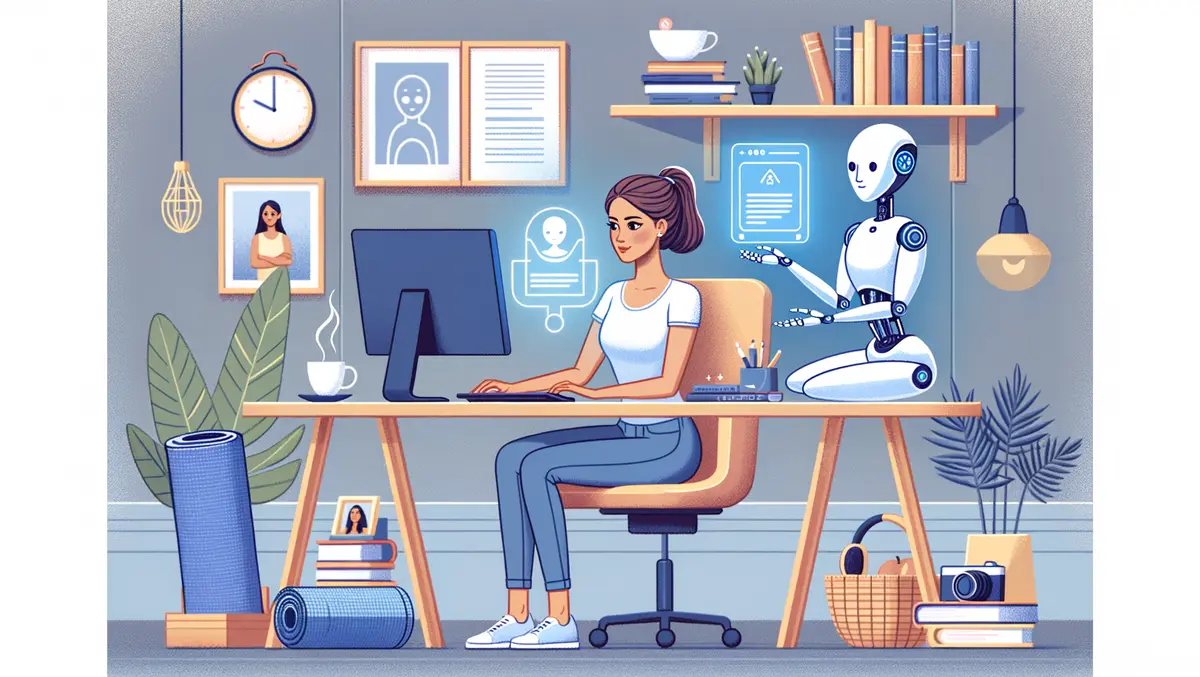
Artificial Intelligence (AI) promises to provide considerable support for women both professionally and personally, according to Emma Barrett, Public Sector Director of Microsoft New Zealand. Speaking at a panel discussion during the Microsoft AI Tour in Sydney, Barrett casts an optimistic light on AI's potential in boosting women's work-life balance and professional development.
Barrett, also a co-leader of Microsoft's women's employee resource group for Australia and New Zealand, has found that challenges prevalent for women at work today include burnout, a shortage of backing and development. AI, she believes, possesses the potential to tackle these issues directly. "AI can directly empower and support women across all of these key areas," she stated.
Burnout, primarily fuelled by pressures from workloads, family dependencies, financial strain, and a juggling act between numerous commitments, is identified by Barrett as a widespread issue for women. She underlined that AI's productivity and enhancements might alleviate these pressures. She pointed to Microsoft's Copilots which could significantly increase efficiency and thus create more personal time.
Exploring practical examples, Barrett noted that sectors dominated by women, like teaching and healthcare, could become far more efficient with the aid of generative AI tools. She explained that their research "shows generative AI could reduce teachers' admin by 30%.". The AI technology's potential even extends towards offering support where confidence may lack. Barrett cites the example of PowerPoint's Online Presentation Coach, an AI tool that provides real-time feedback and helps to hone presentation skills, serving as a virtual mentor.
AI's potential benefits also extend towards circumventing gender bias, a notorious deterrent for women's career growth and development. Barrett asserted that AI could potentially keep unconscious bias in check, particularly when assessing job applications and resumes. She believes that AI could play a considerable role in paving the way for more women into senior roles.
On a similar note, Barrett quoted Vanessa Sorenson, Microsoft's New Zealand managing director, underscoring the importance of moving beyond self-doubt and focusing more on women's capabilities and achievements.
Despite reports suggesting that job displacement due to AI may disproportionately affect women, Barrett remains ardently optimistic. She emphasized AI's potential not as a job-taker but as a job-enhancer. If used wisely, AI could turn the tables, transforming mundane tasks into fulfilling ones and even creating potential roles, she suggested.
Barrett asserts that AI will see a growing need for human skills of empathy, communication and emotional intelligence, complementing AI and sparking more productivity and innovation. In fact, with advancements such as GitHub Copilot, coding may become a more appealing career path for women, expanding IT's diversity.
Overall, she expressed her faith in AI's profound potential to elevate women in their professional aspirations, combat burnout, boost confidence levels, and actively reduce gender disparity. She even anticipates the impact of AI to extend beyond the workplace: managing overwhelming school emails and various daily chores could be the next frontier for the digital assistant.
.webp)